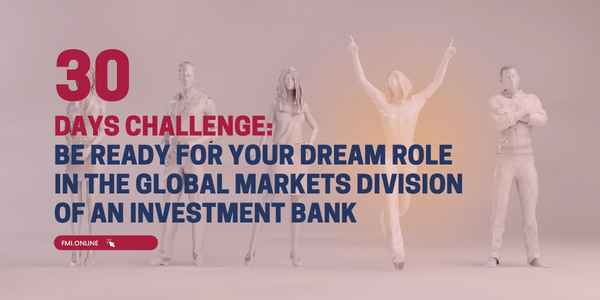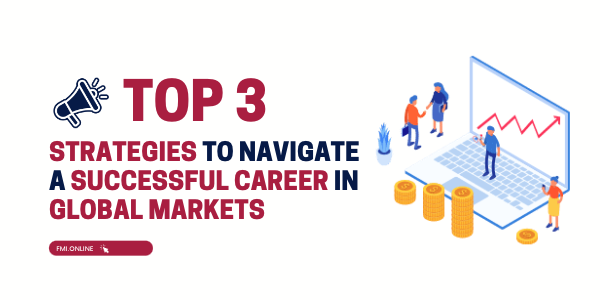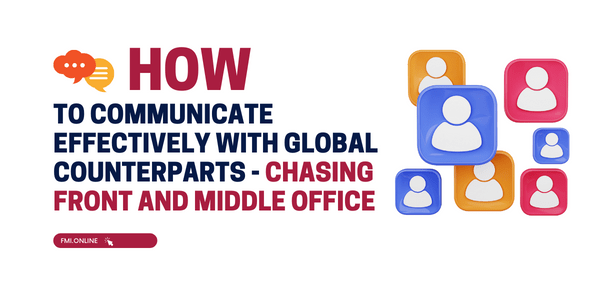In an investment bank, Global Markets work in tandem with corporate, institutional, and government clients to execute trades and manage risk while providing quality research content. It is one of the most lucrative divisions of an investment bank. Within this division, students can tap into front office roles such as sales or trading; middle office roles such as trade support, risk, compliance, product control or IT; or back office roles such as operations, legal, marketing or HR. If you have the opportunity to interview for such a role as an iBanker, you must prepare well for such a job.
In this article, we take you through the various tips and tricks that can help you ace your job interview in 30 days to land your dream role.
1. Pay attention to the types of interview questions
You can be asked the same type of interview question in different ways. Hence, a spin in the language of the question should not faze you. For example, you may be asked “tell me about yourself” as “walk me through your resume,” “tell me about your journey so far,” “How would you describe yourself” and so on.
You should already have a pitch ready as these are the most basic interview questions. Fumbling on this might seem like you are ill-prepared or struggle to explain who you are. You should spend about 30 minutes each day perfecting the answer to this question. Also, remember the interviewer has a copy of your resume so you don’t need to explain verbatim what’s on it. Make this answer interesting by starting off with a brief summary of yourself, then your professional and educational journey and closing it off with something unique about yourself such as a hobby, an adventure you might have been on, involvement with the community service etc. While this is an open-ended question and candidates do have the tendency to talk endlessly, prepare such that you can wrap up this answer in 3-4 minutes.
The other category of interview questions could relate directly to your resume and are usually an attempt to get to you know deeper – why you do/did things the way you did. Examples are:
- “What’s your greatest strength?”
- “What’s your greatest failure?”
- “Tell me about a team activity that did not go as planned.”
- “Why is your GPA on the low side?”
- “What feedback did you receive from your most recent internship or job?
If you see an anomaly on your resume such as a gap period, a shorter stint job, low grades or anything, you should assume you would be asked about it, so you must have an answer prepared.
Another way to go about it is to have the best stories of your life outlined in your mind – this may be a project or internship where you experienced success, a leadership story and also one where you may have faced failure but were able to learn from the challenge. It’s also advisable to have your strengths and weaknesses charted out in your mind as that makes up for a popular question. Then, you can adapt each of these stories to any question that you are asked.
2. Boost your accounting/finance knowledge
You will be asked technical questions in your interview. These can be guesstimate questions or specific questions related to your domain of work. You must be well-versed in the terms and concepts commonly used in global markets or investment banking. For example, in global markets, the life cycle of a trade is a popular question. You can prepare for using these exhaustive simulations.
Other questions may include:
- Walk me through a cash flow statement.
- I buy a piece of equipment, walk me through the impact on the 3 financial statements.
- Why are increases in accounts receivable a cash reduction on the cash flow statement?
- A company runs into financial distress and needs cash immediately. It sells a factory listed at $100 on its Balance Sheet for $80. What happens on the 3 statements, assuming a 40% tax rate?
- What does it mean if a company’s Free Cash Flow is growing, but its Change in Working Capital is increasingly negative each year?
3. Demonstrate confidence and a winning attitude
No matter how well you prepare for your interview, you could still be hit with a question that you didn’t envision being asked. Or it might be a behavioural question as well. In such a situation, the interviewer is waiting to observe your attitude – do you panic, do you stay calm, do you ask follow up questions and so on.
Think of this situation as an actual work scenario where you may be asked to do something you don’t fully comprehend. You would need to trust yourself and make an attempt at learning what the concept is. Similarly, an interview should mirror how you would act in the professional environment. Hence, stay confident as that would count as a major plus. Think of what you know about the topic, answer as coherently as you can, and be honest in communicating that you are eager to learn and have remarkable networking skills that can also aid your learning process.
Conclusion
A 30-day period is sufficient to get ready for an interview in investment banking. If you spend this time on the right material, you will feel fully prepared and confident towards landing the job. Certain unique courses offer the exact concepts and knowledge you need for such specialised interviews such as this 30-day interview bundle. It can prepare you end-to-end for the role as well as for the path leading to it.










 60+ hours
60+ hours 9 courses
9 courses



